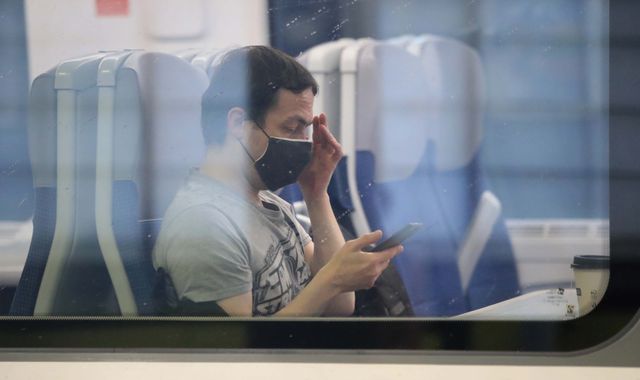London Bridge attack: MI5 accused of ‘damning list’ of failures
Written by News on 28/06/2019
A “damning” list of intelligence failures led to the London Bridge attack, according to lawyers for the families of those who died.


The coroner at the London Bridge inquest has begun summing up at the end of the eight week-long process, after hearing final submissions from bereaved families and other interested parties.
Gareth Patterson QC, representing most of the families, said the Security Service MI5 had “failed to discharge their duty” to properly investigate Khuram Butt, the ringleader of the plot.
The inquest heard how Butt had been a so-called “subject of interest” for two years before the attack, as MI5 tried to build a case against him.
However, investigators failed to spot his association with fellow attackers Rachid Redouane and Youssef Zaghba, or the fact he was working at a gym and an Islamic school owned by an alleged extremist.
“The truth is that the eight people who died relied, as we all do, on the police and Security Service to keep them safe,” the barrister said.
“Regrettably they did not discharge their duty when dealing with this dangerous man, Khuram Butt. Insufficient steps were taken to prevent the attack.”
He said there was a “fairly damning list” of failings, adding: “The attack planning was going on for some time and was there to be detected, it was eminently detectable and these eight tragic deaths did not need to happen.”
Butt first came the attention of MI5 as part of an investigation into significant members of the now banned radical group al Muhajiroun.
By mid-2015, evidence of Butt’s continued association with the group and its leader Anjem Choudary, prompted MI5 to open a more focused investigation, designating him a subject of interest.
Butt was assessed to be a “national security threat” and the investigation was placed in the second highest priority category, meaning he was suspected of “high-risk extremist activity linked to attack planning”.
Between the summer and October 2015, MI5 built up a picture of Butt’s associations with members of al Muhajiroun, including meetings at his own home with Anjem Choudary.
The Security Service also worked out that he was accessing extremist material and sharing it online and police then sought advice from the Crown Prosecution Service.
The CPS advised that one document in particular meant he was potentially encouraging terrorism and could be prosecuted, but in the end no action was taken.
Separately, a call was made to the Anti-Terrorist Hotline in September 2015 by Khuram Butt’s brother-in-law, expressing concern about his increasingly extreme views.
The message was never passed on to counter terrorism detectives, or the Security Service.
The intelligence being received by MI5 pointed increasingly to a greater risk that Khuram Butt would attempt to travel to the Middle East, than launch an attack in the UK.
That information was at least partly correct, as evidence emerged at the inquest of how Butt’s family seized his passport and tore up airline tickets to Turkey, suspecting that he was planning to take his wife and young child and join Islamic State in Syria.
Scotland Yard spotted an opportunity to disrupt Butt by arresting and jailing him for fraud, when they discovered he had fraudulently reported unauthorised withdrawals from three separate bank accounts in 2016.
MI5 believed that the arrest looked like an “attractive potential option to disrupt him” because “if he could be successfully prosecuted, we would be in a position whereby he would clearly be off the streets and therefore no longer a threat”.
However, on 1 June 2017, two days before the attack, the CPS advised police that there was not enough evidence to charge Butt with the fraud, which had ultimately netted £3,300.
When Butt was initially arrested on fraud charges, four mobile devices were seized and examined.
They contained numerous files suggesting extremist views and support for IS, including images of mass executions.
MI5 downgraded its assessment of Butt just two weeks before the attack, his potential for launching a solo attack lowered from strong to moderate.
The inquest also heard how Rachid Redouane, a Moroccan national, was known to police for immigration offences, and Youssef Zaghba was put on a European-wide law enforcement database after trying to travel to Syria from his home country of Italy.
Italian authorities put his name on the EU’s Schengen Information System but under the wrong marker, meaning he was flagged for serious crime rather than national security.
Although Butt’s home in east London was under partial surveillance, there was no coverage of the address on the day of the attack and so MI5 did not see the three terrorists loading the hired van they would use that evening to knock down pedestrians on London Bridge.
“That would have added to the alarm bells ringing in any investigator’s mind,” Gareth Patterson said. “Straightforward investigative work would have revealed these things.”
The chief coroner, Mark Lucraft QC, will conclude his summing up on Friday and is likely to deliver a series of recommendations at a later date.
Xavier Thomas, 45, Christine Archibald, 30, James McMullan, 32, Alexandre Pigeard, 26, Kirsty Boden, 28, Sebastien Belanger, 36, Sara Zelenak, 21, and Ignacio Echeverria Miralles de Imperial, 39, died in the 2017 attack.
Dozens of others were seriously injured.
(c) Sky News 2019: London Bridge attack: MI5 accused of ‘damning list’ of failures







